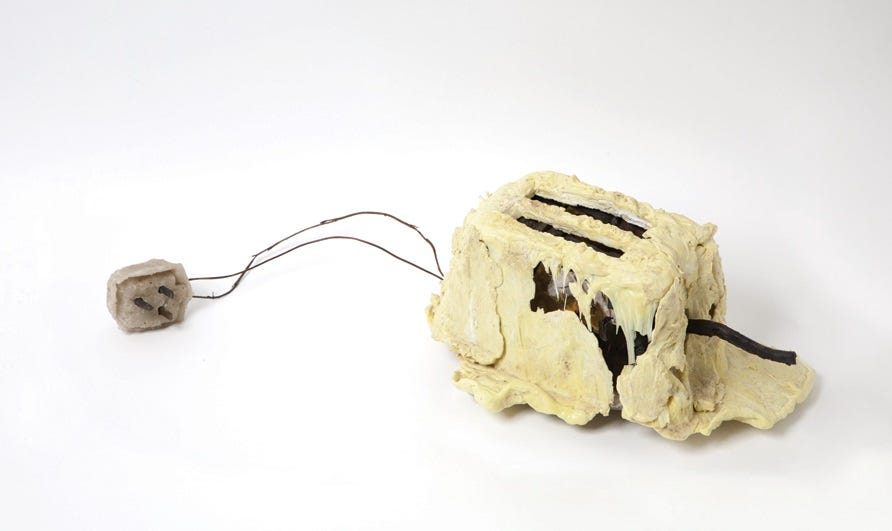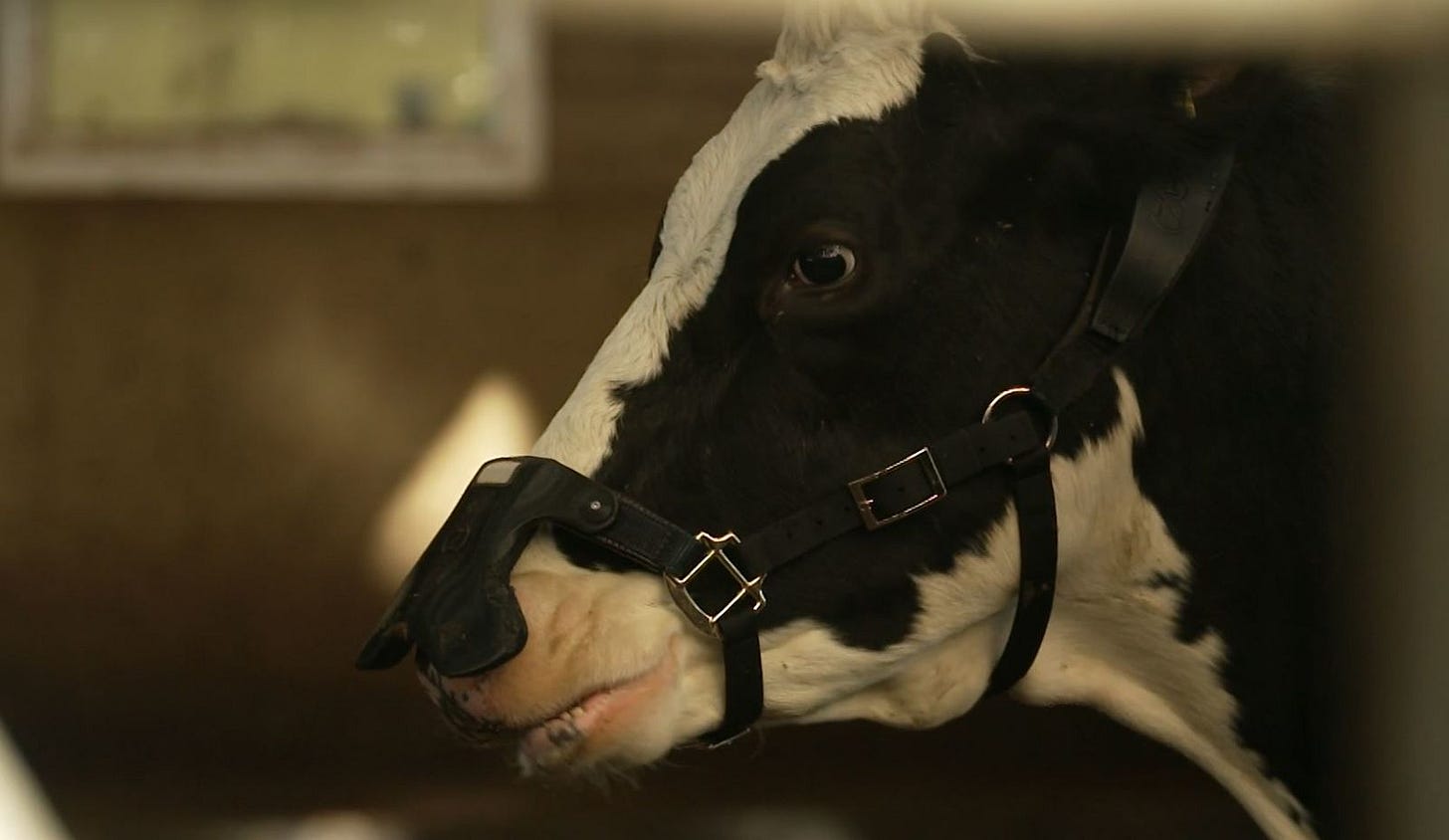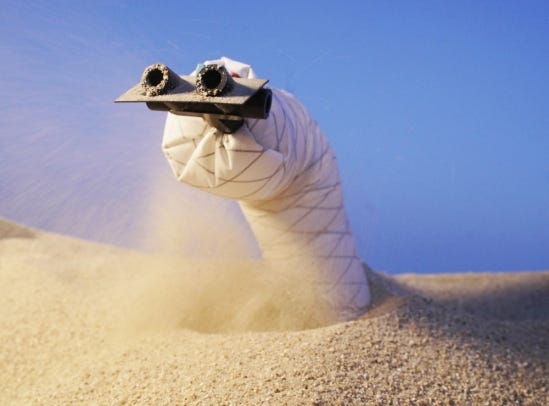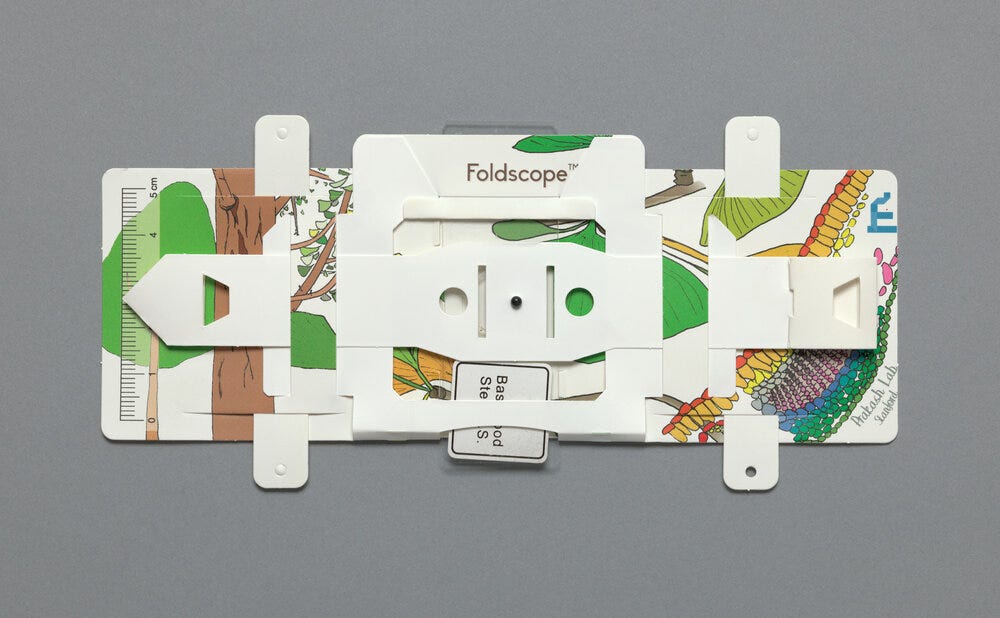A Toaster from Scratch, How to Eat Healthily, Paper Microscope and Remote Worship
#21 of 10+1 Things
⚡ Welcome to #21 of 10+1 Things!
Thanks to everyone who bought me coffee last week. Your support($1 or ₹75) keeps this newsletter up and running.
Here are 10+1 Things that I thought were worth sharing this week:
🍲 How to Eat Healthily
In a well-researched guide, James Clear the author of the famous book Atomic habits has shared practical strategies on how to eat healthily. Unlike diet gurus who talk about the importance of eating healthy, James has focused on the principles of behavioural psychology and habit formation in the guide. He starts with the science of why we crave junk food and how manufacturers have intentionally created the cravings. Later in 6 practical steps, he explains how to eat healthy without even noticing!
🐮 Burp-Catching Masks
Unknown to many, cows are a major contributor to global warming, due to the methane they produce while burping. Methane which is 84 times more potent than carbon dioxide, absorbs the sun’s heat and warms our atmosphere. A UK based company called Zelp has developed a burp-catching face mask for cows that can reduce emissions by 60 per cent. At the tip of the mask, a sensor detects the percentage of methane when the cow exhales. When the methane level is too high, the mask diverts the gas into an oxidation mechanism that converts the methane into carbon dioxide and water, then expels it from the mask. This technology is quite revolutionary as other solutions for this problem relies on tinkering with the cattle feed that can alter the digestive process.
⏳ Time Banking
Created by Edgar S. Cahn, Time Banking is a time-based currency. The concept is simple: when joining a time bank people agree to take part in an exchange system that involves earning and spending time credits instead of money. When they spend an hour on an activity helping others, they earn one-time credit. When they need any help from others at a later point in time, they can use the time credits they have accumulated. In 1995, Cahn set up an organization called TimeBanks as an incubator for new time banking initiatives and currently time banking takes place in more than 30 countries around the world. Time banking plays a powerful role in achieving a more equal society as all hours are equal irrespective of the nature of the act.
🕍 Remote Worship
While researching the ability of teams and cultures to thrive remotely in a decentralized fashion, Dror Poleg draws up examples from Jewish history. When Romans captured Jerusalem and destroyed its temple 2000 years ago, it forced Judaism into a radical change. The core of Judaism rested on the temple and Judaism was forced to become decentralized overnight. For the religion to survive, it was essential to transform from a place-based religion into a text-based one. The priests who fled from the temple wrote everything into manuscripts and texts, prayers were shifted from a centralized location into local synagogues, followers were empowered to worship independently based on their schedule and communities were set up around the world who kept in touch often. This shift to decentralized remote worship kept Judaism alive and inspired many ideas and thinkers of the modern world like Marx, Spinoza, Freud and more.
As Poleg points out, this event from Judish history sounds quite analogous to what we are facing now due to the global pandemic. Are we going through a radical change?
🐙 Burrowing Robot
Even though we have robots that can swim, walk or fly, researchers have always struggled to build a robot that can burrow earth to explore the subterranean world. Inspired by both the roots of plants and a burrowing sand octopus, researchers have now developed a soft robot capable of burrowing under the ground. To reduce friction while moving down, the vine-like soft robot mimics the plants in the way they navigate by growing only from their tips and keeping the body stationary. While moving horizontally, the robot imitates the burrowing sand octopus: by blowing air from its tip in asymmetrical directions to overcome the resistance of the sand. The team is now working on a scaled version of the robot that will be eventually sent into space by NASA.
🔬 Paper Microscope
Foldscope is a paper microscope invented by Manu Prakash, an assistant professor of Bio-Engineering at Stanford University and costs under $1 to manufacture. The paper microscope uses origami to make a stable cardboard microscope body and uses glass beads for a lens. It is portable, has a 140X lens and does not require any external power. It is also safe to use in wet environments and is quite useful for researchers and other teams working in humid areas in developing countries. Instead of an eyepiece, you can also use your smartphone’s camera, which can be docked to Foldscope, enabling users to capture photos and videos. The product is a part of the "frugal science" movement which aims to make cheap and easy tools available for scientific use in the developing world.
🧵 Lessons from Sports
In an interesting Twitter Thread, Sahil Bloom has shared 15+ life lessons that you can learn from sports. Sahil played competitive basketball all his life but had to end his career due to an injury. While Sahil thought that all the hard work he had put in was a waste, he later realized the lessons he has learned and distilled them into this wonderful thread. From managing dynamic personalities to being coachable, the thread is an excellent compilation of lessons to be learnt from sports.
🖼 Within 15 minutes
This week I'm exploring an art project called 'Within 15 minutes' by Alma Haser, who has always been fascinated by identical twins. Identical twins are two individuals that are hard to tell apart, but through her project, Haser tries to show how even these twins are unique and different. She photographed identical twins and printed their photographs into identical 1000 piece jigsaw puzzles. Every other piece in the puzzle was swapped until each puzzle contained half of the pieces from the other. Surprisingly, it was impossible to predict where the eyes, mouths, or lips are located since the newly arranged puzzles transformed into unrecognisable portraits. The name 'Within 15 minutes' comes from the average time between twins when they are born and shows us how unique we all are.
How I Built a Toaster from Scratch
This week I enjoyed watching a TED Video titled 'How I built a toaster from scratch' by Thomas Thwaites. In the talk, Thomas explains how it takes an entire civilization to build a toaster. As a designer Thomas attempted to build one toaster from scratch: mining ore for steel, deriving plastic from oil and even moulding his own case. He surprised me with how far he got, but also got me thinking about how interconnected our society is. The video really inspired me as an aspiring contemporary artist and I even ended up finishing the book by Thomas on the same in less than an hour. To learn more about the project you can read his book on Amazon or check out his website.
From the comments, "This makes you realize how important teamwork is. If humans couldn't communicate and work together, we would still be walking on the Savannah."
📚 Millionaire Fastlane
I'm currently reading the book, 'The Millionaire Fastlane' by M. J. DeMarco about getting wealthy and retiring in 10 years rather than 40 years. The title sounds a bit clickbaity, and I was reluctant to read it, but nonetheless, DeMarco shares his experience with his limousine booking website, where he made millions in revenue. The book challenges the conventional mindset of accumulating wealth by getting a fancy education or investing money for the long term and focuses on starting your own profitable business.
My favourite quote so far from the book is:
“Instead of digging for gold, sell shovels. Instead of taking a class, offer a class. Instead of borrowing money, lend it. Instead of taking a job, hire for jobs. Instead of taking a mortgage, hold a mortgage. Break free from consumption, switch sides, and reorient to the world as producer.”
🎧 What I’m Listening to
It's raining cats and dogs here in Kerala, India and I've been listening to this Instrumental Chill Music Mix by Fluidified.
📣 Shoutouts
Creativerly
Last week I've enjoyed reading Creativerly, a weekly digest with a goal to help creative people find new tools and resources, which they can use to boost their creativity and productivity. Each issue is packed with creativity and productivity-boosting tools and resources, combined with useful insights, articles, and learnings from the fields of design and tech. If you're a creative person or you're interested in design & tech, this is a must-read!
Master the Creator Economy
After 15+ years working as a creative professional, Daren from Craftsman Creative is running a free 5-day email course for creators. The course helps creators to create a resilient, profitable business that provides them with the freedom and control in their creative life.
That’s 10+1 Things for the week.
This newsletter is free, but not cheap. You can help me in keeping it going by forwarding it to someone you like, leaving a testimonial, buying me a coffee ($1 or ₹75), sending me some crypto, visiting my blog or following me on Twitter.
See you next week!
With Love,
Rishi
“The fundamental delusion: There is something out there that will make me happy and fulfilled forever.”
~ The Almanack of Naval Ravikant resurfaced using Readwise(FREE).







